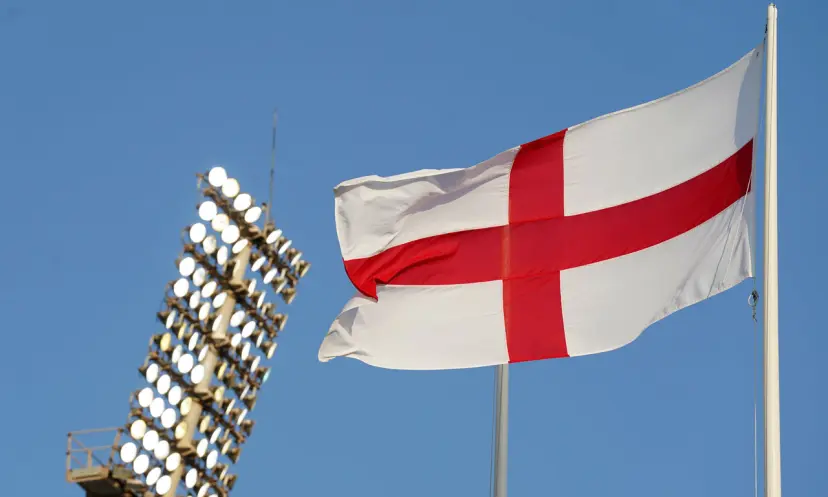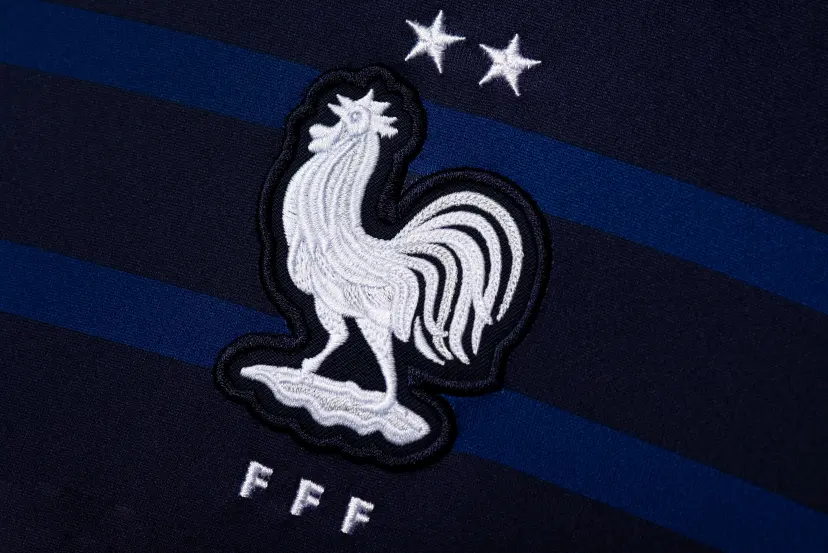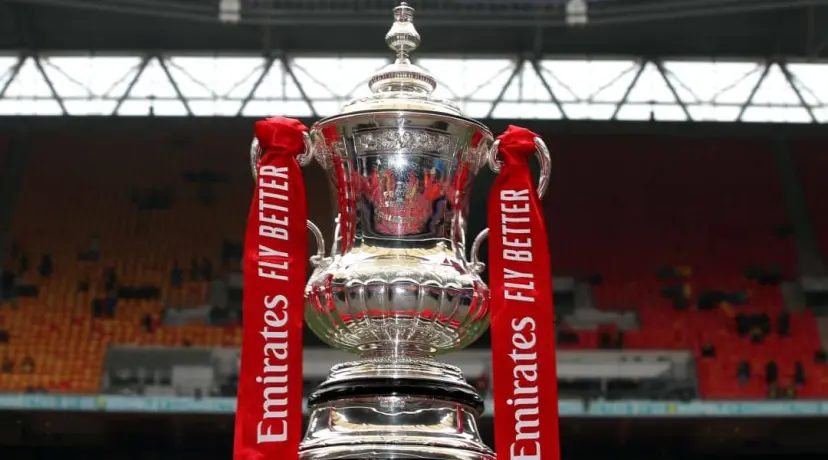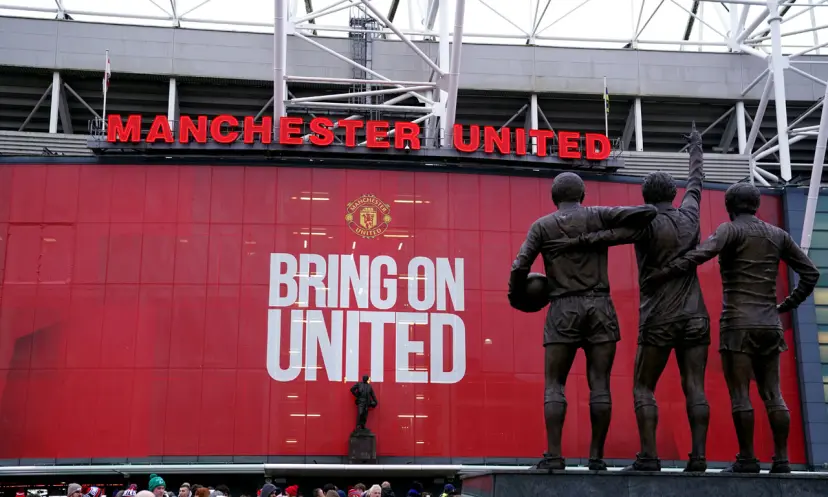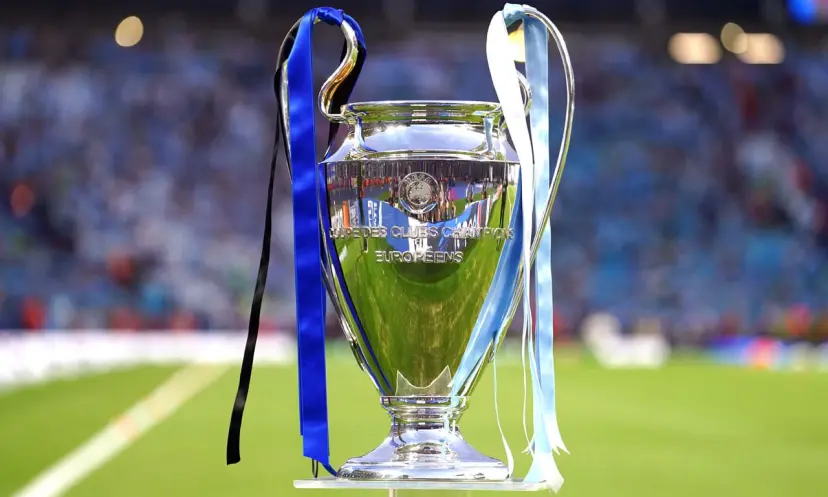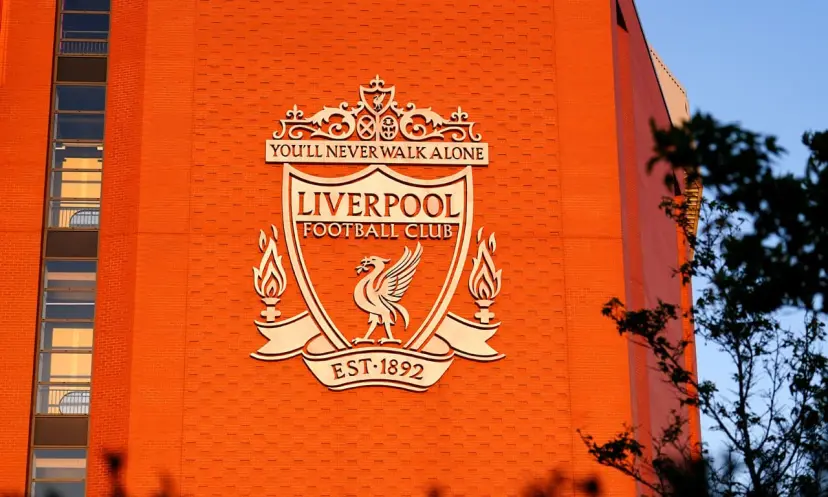Premier League: How a packed European and domestic schedule can affect form
Published: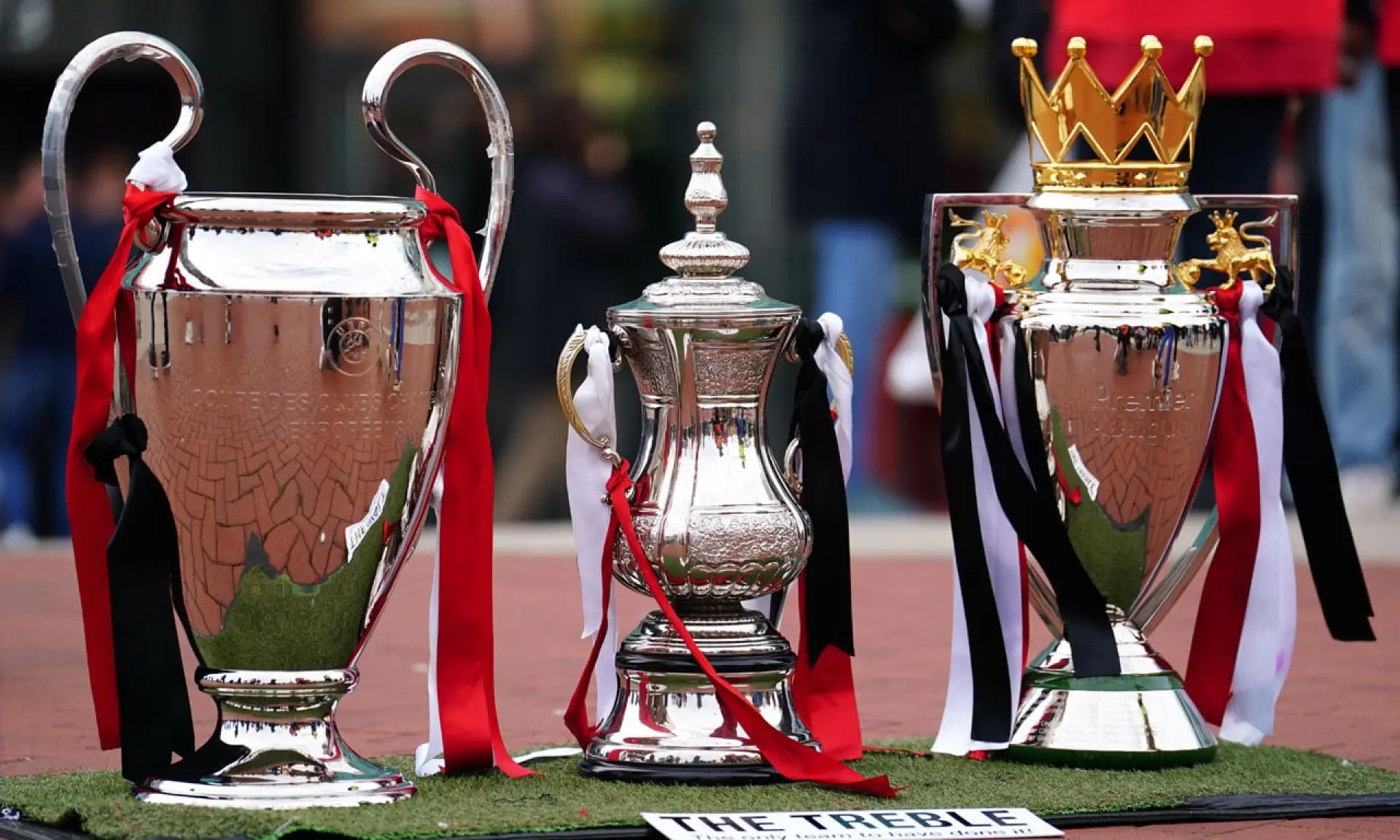
How fixture congestion affects Premier League form
We are now entering the business end of the 2022-23 campaign, with the Premier League’s top clubs once again having to manage European games on top of their domestic schedule. We have looked back at the last decade of data to see the impact of fixture congestion, plus which teams are most at risk of burnout this season.
How bad can fixture congestion get?
On top of the 38 games in the Premier League schedule, clubs also have to navigate two domestic cups – with the threat of replays – and (for the privileged few) a demanding European fixture list. These commitments often add up to over 60 competitive matches in a season, as 10 teams have found in the last decade alone.
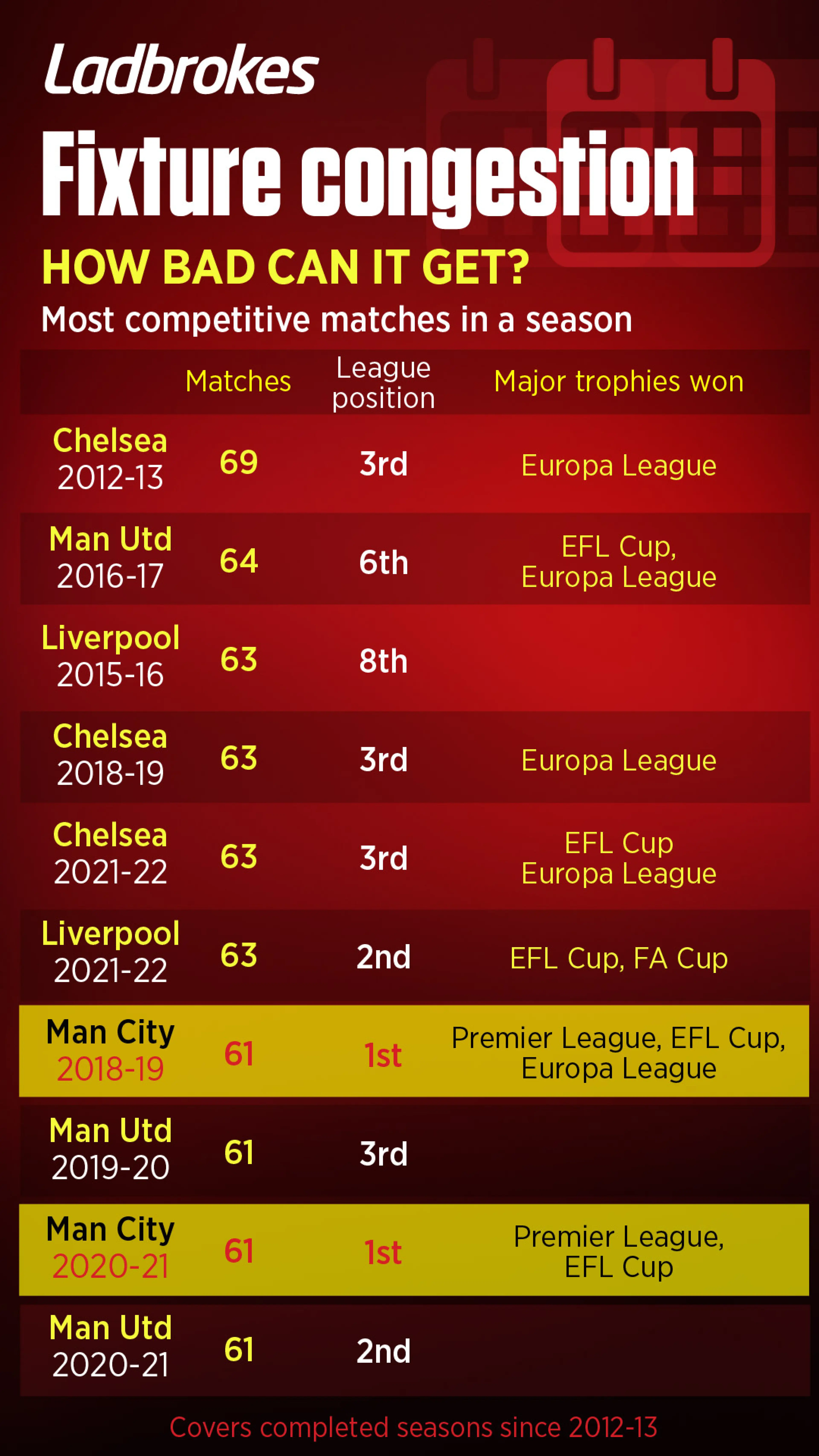
This amount of distraction is clearly tiring, with only Manchester City winning the Premier League during that spell on two occasions. Chelsea’s 2012-13 campaign tipped the scales at 69 matches across eight different competitions, but only delivered one trophy. This was the Europa League – a consolation prize secured by interim manager Rafael Benítez after his predecessor had overseen an embarrassing exit from the Champions League.
A similar fate could befall Manchester United this season, who are currently on course to play up to 65 games in 2022-23. The Red Devils – still in both domestic cups and the Europa League – have more games under their belt in the calendar year so far than any other top-flight side. They could therefore struggle to challenge on all fronts – and may miss out on the Premier League top four – if their cup success continues.
Whose squad is already creaking?
With UEFA’s three club competitions resuming in February, there are seven Premier League clubs in the mix and therefore at risk of fixture congestion during the run-in. At the start of the knockout phases their squads contain 37 players who have accumulated at least 2,000 minutes of competitive game time for them already this season, excluding any additional minutes played during the World Cup.
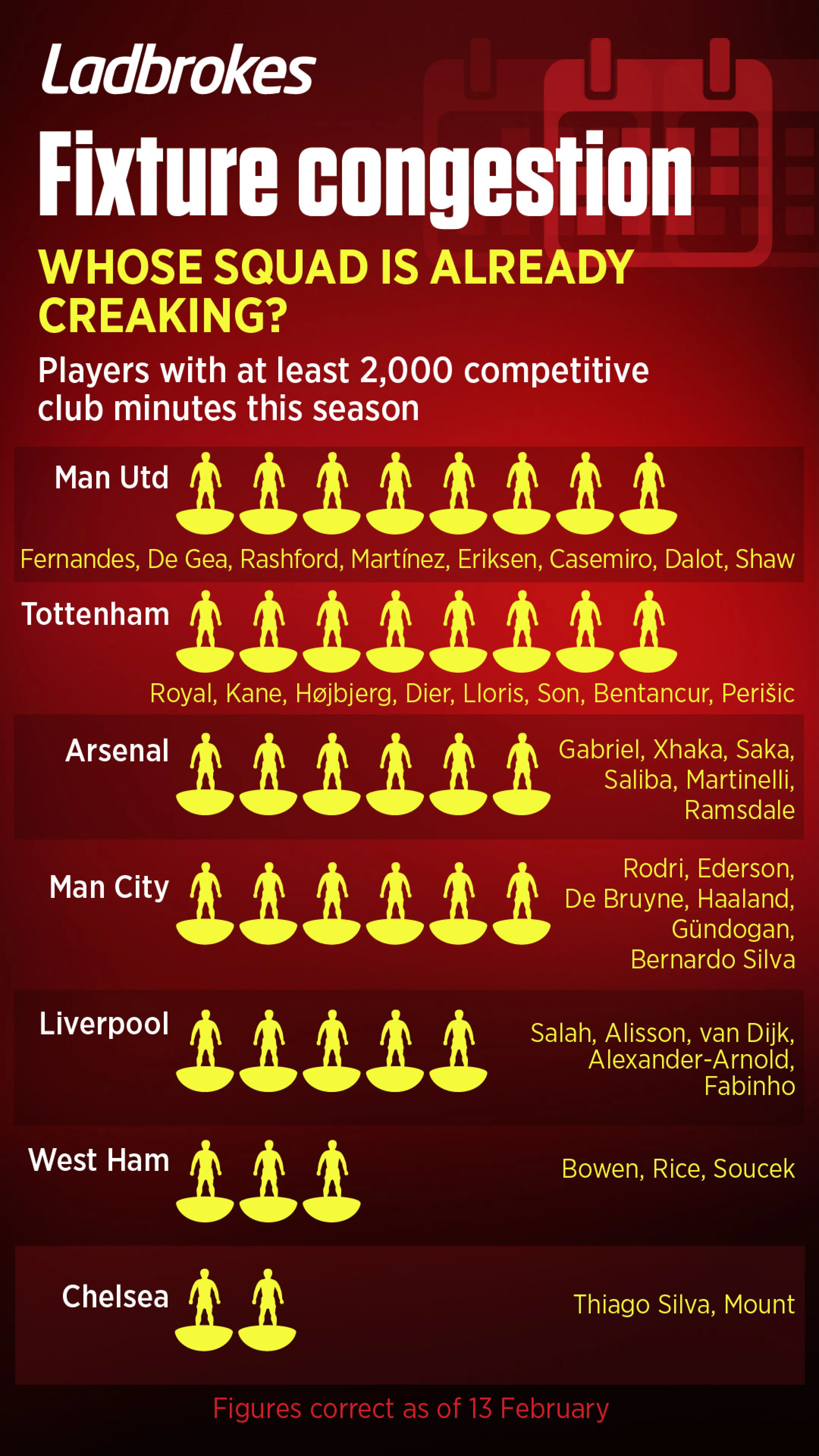
Manchester United and Tottenham have the most – eight apiece – coincidentally including the recently-injured trio of Christian Eriksen, Hugo Lloris and Rodrigo Bentancur. Title contenders Arsenal and Manchester City have six each, while Chelsea have just two and could therefore be fresh enough to launch a late upward surge as their rivals tire.
Does playing in multiple competitions cause a distraction?
Competing on multiple fronts in the latter part of a campaign can be both a blessing and a curse. The combination of a busy fixture schedule and a small playing squad can easily derail a club’s ambitions, but equally the prospect of lifting more than one piece of silverware can spur a team on.
To test whether playing in cup competitions detract from a team’s league form, we have compared the Premier League records of the ‘big six’ while in and out of cup competitions in the second half of the season.
Over the past decade, Arsenal have seen the biggest drop-off in points while juggling the Premier League and other competitions, adding fuel to the suggestions from some pundits that the Gunners might be better off sacrificing the Europa League in favour of chasing a first domestic title since 2003-4.
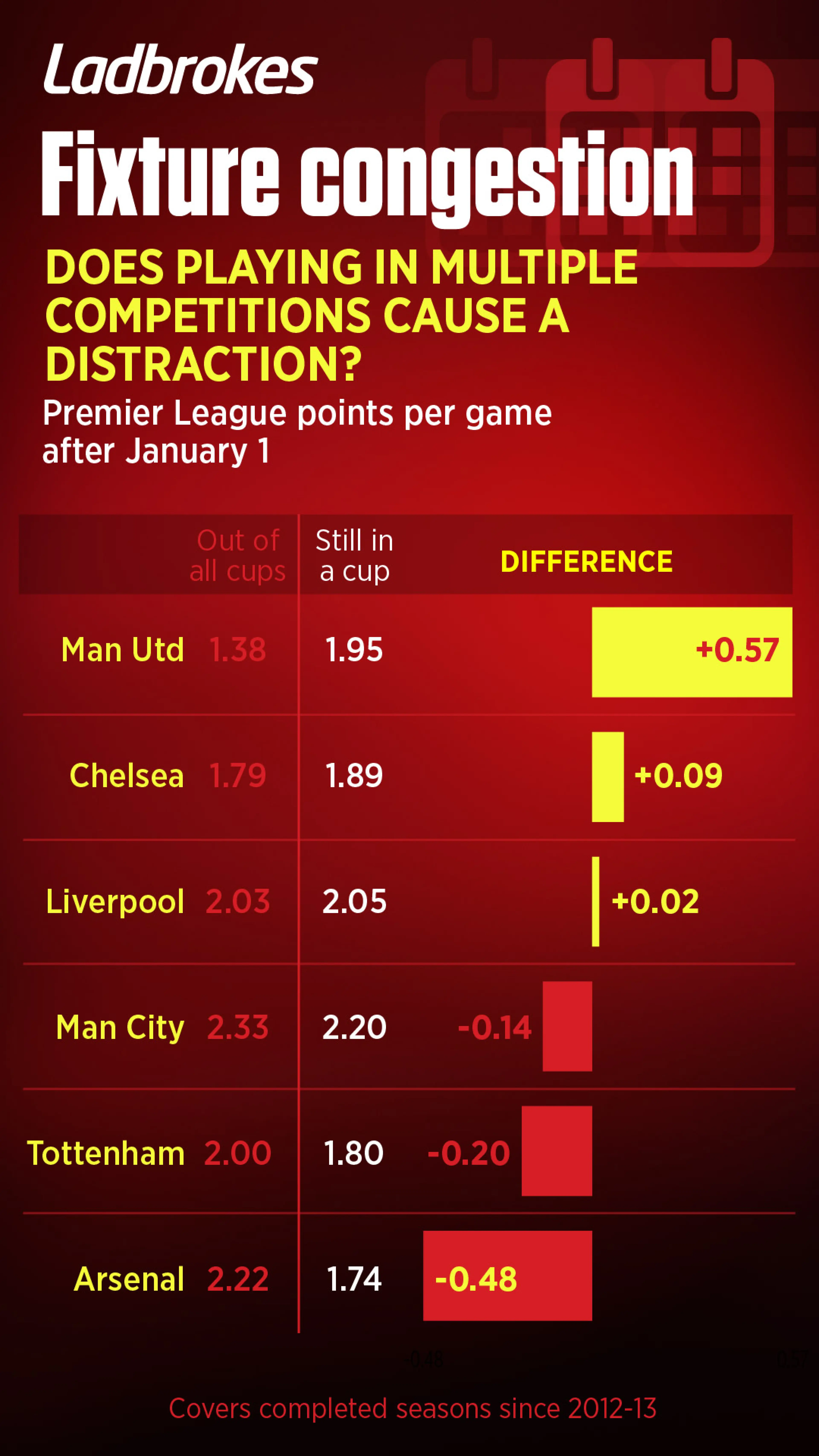
Arsenal’s north London rivals Tottenham also see their league form suffer in the second half of the campaign when they are in a cup. The same could be said of Manchester City, although their points-per-game ratio has remained healthy regardless.
Meanwhile, Manchester United have craved a shot at some kind of silverware over the past decade, with their league form far superior when competing on multiple fronts as opposed to being out of all the cups. Last season was a case in point – the Red Devils won just two of their final nine Premier League games after losing to Atletico Madrid in the Champions League in mid-March.
Goalscoring becomes a grind
We have also drilled deeper into the stats to see what aspects of a team’s play suffer the most in a congested schedule, and the clear answer is their ability to score goals. We compared the goalscoring rates of every club in the first and second halves of their Premier League campaigns during the last decade and found that the attacks of Champions League contenders struggled to maintain their output.
Of the 15 clubs who finished in the top four after having to play a game at least once every five days during the second half of their Premier League campaign (on average), two thirds (10) saw their goalscoring rate drop.
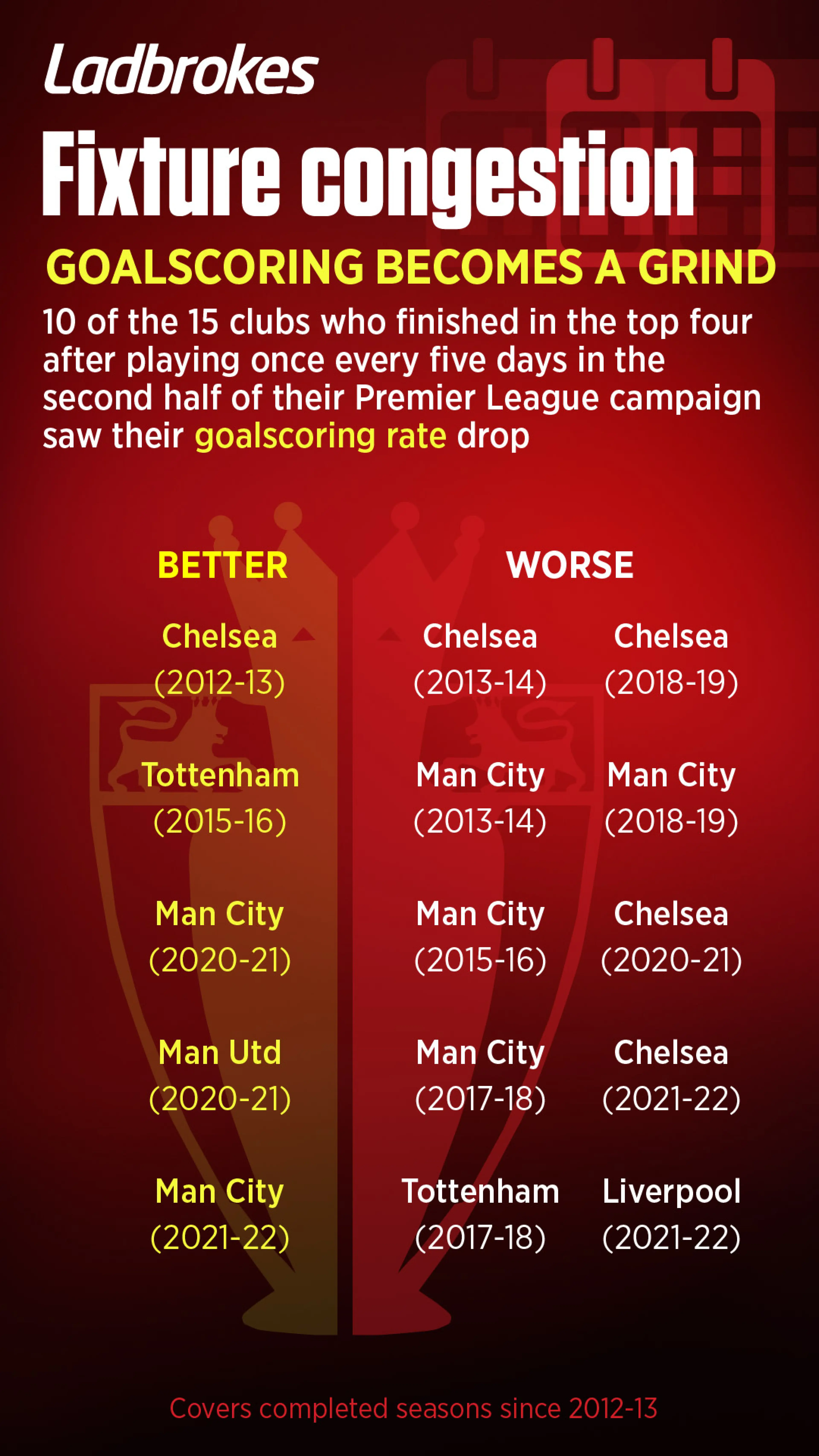
This includes Chelsea and Liverpool last season, who met in both domestic cup finals and made it to the latter stages of the Champions League. On average these two sides were playing a competitive game just over once every four days and saw their goalscoring rates reduce by over 10% compared to the first half of the Premier League season.
Therefore, we should not expect big teams to hand out as many thrashings towards the end of the season if they are still competing on multiple fronts.
A cup run can be counterproductive
We can also look at teams who battled relegation over the last decade to see how fixture congestion – triggered either by a cup run or multiple postponements – affected their performances. Matches don’t often pile up to the same extent as struggling teams aren’t the sorts who reach the latter stages of a UEFA competition, but there were still 18 who had to fulfil a fixture at least once every six days.
Of these, a third saw their performances deteriorate in both attack or defence and only two of the other 12 didn’t see a drop at either end of the pitch.
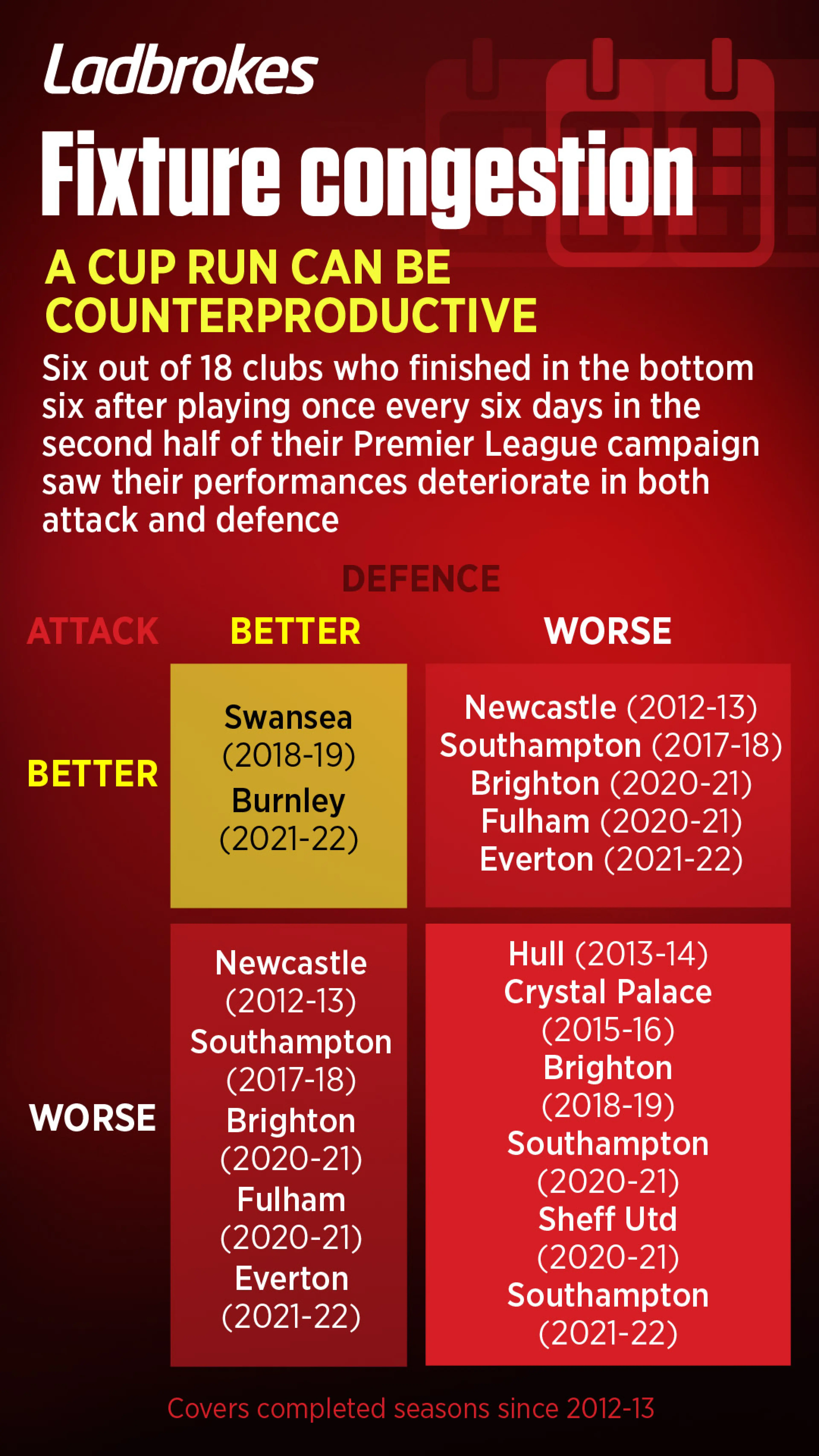
There are three clubs battling relegation this season who are still in the FA Cup: Leeds, Southampton and West Ham. With the Saints playing lowly Grimsby in their fifth-round tie and having seen fixture congestion undermine each of their last two Premier League run-ins, there’s a real danger that this is the year they finally lose their top-flight status.
David Moyes’ Hammers are also still competing in the Europa Conference League, so despite their stronger squad they could easily get sucked towards the drop zone while trying to challenge for two other trophies.
